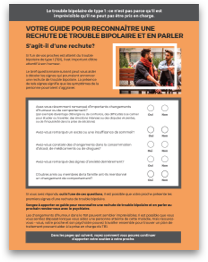Introduction
Otsuka Canada Pharmaceutical Inc. and its parent company, subsidiaries and affiliates (collectively the "Otsuka Group of Companies" or "Otsuka") operate a variety of Websites or online resources designed to provide users with information and services, including but not limited to health resources, corporate news, patient support program information and product information. Some of Otsuka’s Websites (including applications or other online resources collectively referred to “Websites” throughout this document) may also enable healthcare professionals and patients to receive product information, samples and/or order products. Whether you are a patient, healthcare professional, or a customer, respect for the privacy of your personal information is very important to Otsuka.
In that respect, Otsuka is committed to complying with all requirements set forth in applicable laws and more particularly the ones governing the collection, use, storage, sharing and destruction of any information about an identifiable individual (“personal information”), and has put in place various measures, practices and guidelines to ensure that the privacy and the confidentiality of any personal information is preserved.
This policy describes how Otsuka collects, uses, handles, stores, shares, retains and destroys personal information obtained about users when they visit and use any of our Websites on which this Privacy Policy appears. Otsuka is committed to collecting, maintaining and securing personal information in accordance with the provisions set out herein and in compliance with applicable privacy laws.
What information do we collect?
When you interact with us through our Websites, Otsuka may collect personal information about you with your consent, which can be implied or express depending on the circumstances, for the purposes described in this Privacy Policy, or as otherwise permitted or required by law.
Personal information
The types of personal information collected from you will be based on how you interact with us, in particular based on the specific program or services that you register for on our Websites or based on online materials that you choose to access. The information that we may ask you to provide could include your first and last name, your contact information, such as your mailing and email address, and information about your medical condition(s) (only when necessary to fulfil your request for information, support or documentation) and the province you reside in. If you are a healthcare professional, we may also ask you to provide your licence number or area of specialty, as further described below.
Depending on which Website you visit, you may not be able to receive certain materials, enroll in programs or request information unless you provide us with personal information necessary to provide the services requested. Otsuka limits the collection and processing of personal information to what is necessary to fulfill the purposes for which it is to be used. As such, you will be able to register online, subscribe to a service or engage in other activities described below by providing us with such “necessary” information, while you will be entitled (but not required) to provide any additional “optional” information. We will also offer you the option to withdraw your consent at all times ("opting out" or "unsubscribing") if you later decide that you no longer wish to participate in a particular program or receive certain types of communications from us, subject to legal or contractual restrictions.
De-identified information and other data
De-identified or anonymized information, namely personal information from which a person’s name and other unique identifiers have been removed, so that the information can no longer be linked to an identifiable individual, as well as other non-identifying data may be used in accordance with applicable laws to improve and develop programs and services or for study, research or statistical purposes.
Intended use of personal information
Otsuka may collect the following types of personal information about the users and visitors of its products, services, Websites:
Account registration: Most of our services do not require any form of registration, allowing you to visit our site or access various types of material or content without the need to register online or subscribe to our services. However, some services may require the creation of an online account or the completion of a registration process. When you register with us, you may need to complete certain fields (some are required and some are optional), as well as choose a username and password. In these situations, if you choose to withhold any personal information which is “necessary”, which is used to verify your eligibility to receive these services), it may not be possible for you to complete the registration process and gain access to certain parts of the site, as such information is required to create your personal profile and authenticate you in future connections, to communicate with you whenever required and, in some cases, to ascertain your eligibility to register online or subscribe to our services.
Confirmation of user credentials: We may also collect information about physicians and other healthcare professionals, who register on our Websites or who access materials, in order to verify licensure status and identity. In some instances, you may be asked to provide additional information such as your email address if you want to obtain additional services, information or to resolve any complaints or concerns.
Adverse events: Any person wishing to report an adverse event, product quality complaint or any feedback on any of our products, must contact the Medical Information and Drug Safety Department directly by email OCPI-medInfo@otsuka-ca.com, phone: 1-877-341-9245 or fax: 1-844-268-9110. You may be required to provide your name, email address, address and other contact information, as well as some details about the adverse event or other situation that you would like to report. This will allow us to evaluate the health product’s profile and take measures to protect patients and the public in general. We may also be required to report adverse event information to local and internal regulatory authorities in accordance with applicable reporting requirements. If you are a patient, the Medical Information and Drug Safety Department may request the name and contact information of your treating physician to follow up or help you report this incident to this physician and find proper healthcare resources.
Questions and comments: We may also collect and use personal information you provide us when you contact us to ask a question, provide feedback or suggestions, or otherwise make an inquiry or complaint. For example, we may collect your full name, contact information and relevant details about your inquiry or complaint in order to manage and respond to such inquiry or complaint. If you are a patient or consumer, we invite you to consult your healthcare professional for information on our products and for medical or health-related inquiries. Your healthcare professional (physician, pharmacist, nurse, etc.) is the most qualified person to respond since the answer to your questions may vary based on your health condition and medical history.
Newsletters: If you subscribe to our newsletters, we may collect and use your contact information to send such electronic documents. You may opt out of receiving such communications by using the unsubscribe method provided within emails you receive.
Surveys: We may invite you to complete a survey to better understand the preferences and interests of our users and to measure their level of satisfaction with respect to our products and services. If you decide to participate in a survey, we will provide you with a separate notice describing how we intend to use survey responses. It is completely up to you whether or not you want to participate.
Marketing and promotional initiatives: We may use contact information of individuals with whom we have a business relationship, namely any person who enquires about our products and services, subscribes to our services or register to our events, accepts a business opportunity or otherwise contracts with us, to inform them about our products and services, invite them to events and provide them with other information of interest. We may do this in a variety of ways, such as by email, telephone or direct mail. Such communications will be made in strict compliance with applicable law, including Canada’s Anti-Spam Legislation. If you no longer wish to receive commercial electronic messages, you may opt out of receiving such communications by using the unsubscribe method provided within emails you receive.
Future services: Otsuka is continuously striving to improve the services it offers, or create new services to better suit your needs. Furthermore, new partnerships or other business transactions may lead to the implementation of new services. The foregoing may result in the collection of new personal information. Should Otsuka start collecting additional personal information or substantially new types of personal information or materially change how it handles such information, then Otsuka will notify this change to you in accordance with the provisions herein.
Cookies
As you browse on Otsuka’s Websites Otsuka may collect and store through standard operation of Otsuka’s Internet service or through the use of "cookies" or "internet tags" and other similar techniques personal information such as: the name of the domain and host from which you access the Internet, the Internet protocol (IP) address of the computer you are using, the browser software you use and your operating system, the date and time you access our Websites and the Internet address of the Websites from which you linked directly to our Websites.
Cookies are small text files. Generally, cookies work by assigning a unique number to the user that has no meaning outside the assigning site. Tags (or GIFs or web beacons) are invisible tags placed on certain pages of a website and generating a notice of that visit. A Website can use the foregoing to recognize repeated usage, to facilitate the user's access to and use of a site as well as to allow a site to track usage behavior and compile aggregate data (such as the date and time of users’ visit) that will: allow content improvement, to remember your preferences, to maintain your session open and help the Websites work properly (e.g. when moving from a webpage to another), to prevent fraudulent use of your account, or to generate targeted messaging.
While persistent cookies – such as “preference cookies” collecting information (such as your preferred language and size of
lettering), “statistical cookies” and “advertising cookies” – can be blocked, temporary cookies, such as “process cookies”,
“sessions state cookies” and “security cookies” – making the Websites work properly when moving from a page to another, maintaining your session open and preventing fraudulent use of login credentials – are essential to ensure the integrity and security of your online session and as such, cannot be blocked. If a user does not want information to be collected through the use of persistent cookies, there is a simple procedure in most browsers that allows the user to deny or accept the cookie feature. However, users should note that cookies may be necessary to provide the user with certain optional features (e.g. customized delivery of information) available on Otsuka’s Websites. Likewise, you can turn off pixel tags, which will thereafter simply detect anonymous Website visits.
Information shared by third parties
Otsuka has concluded agreements with business partners such as Google, offering technological services, such as Google Analytics, allowing the collection of information about users’ interactions with the Websites. This collection of information is made through codes placed on the Websites, compiling information about the pages consulted and the type of browser and device that was used. The information collected will then be processed by Google or other business partners on their platform and subsequently transmitted to Otsuka, and updated from time to time. The information obtained from these tools is used on an aggregated de-identified basis to improve the Websites. You can manage your privacy preferences with respect to certain third parties, such as Google, by using the functionality within their platforms.
Storage of personal information
Subject to applicable laws, Otsuka will store personal information only for the purposes for which it was collected and as long as it is necessary to fulfill such purposes. In that respect, Otsuka has put in place measures of control, timeframes and guidelines pertaining to the storage of personal information and to the destruction of files and other supports containing such personal information when deemed no longer required or relevant under the law or for the purposes listed in the previous section.
Sharing your personal information
Otsuka will not share your personal information with unrelated third-parties for their own separate use, unless we have obtained your consent to do so or as otherwise permitted or required by law.
Information shared with our service providers and business partners
When you provide personal information to Otsuka, it may occasionally be transferred to service providers and business partners who act for or on behalf of Otsconnection with the business of Otsuka, for further processing in accordance with the purpose(s) for which thoriginally collected, such as evaluating the quality of the services or of our technical support. For instance, sucinformation may be accessible to some of Otsuka’s business alliances and service providers, such as agencies or companies we retain to fulfill requests for information, answer telephone calls or provide assistance to us on specific programs or projects and otherwise help us fulfill any purpose described above. In addition, Otsuka may enter into business relationships with other companies for co-promotion purposes.
Otsuka requires third parties, with whom it shares personal information, to protect personal information using substantially similar standards to those employed by Otsuka and to comply with this privacy policy. Otsuka also requires that these third parties do not use your personal information for any separate use that is not specifically authorized by Otsuka. Finally, these third parties have contracted with Otsuka that they will only use personal information for the agreed upon purpose, and will not sell your personal information to third parties, and will not disclose it to third parties except with your consent, or as may be required or permitted by law (e.g. in support of any legal or criminal investigation).
Likewise, should the information provided be shared with other Otsuka Group of Companies, including other affiliates, subsidiaries or departments within a particular Otsuka Company then Otsuka will ensure that they will abide by substantially similar privacy requirements relating to your personal information and to comply with the provisions of this privacy policy. Where such disclosure of personal information to a third party occurs, Otsuka will ensure that the processing is performed in accordance with the purposes and within the limits under which the personal information was originally collected.
Information shared with other third-parties
There may also be instances where Otsuka may be required or permitted by law to share your information with third parties who have not been retained by Otsuka, such as with health authorities, in order to report possible adverse drug events, during inspections or audits, or as ordered or directed by courts or other governmental agencies.
Personal information may also be transferred to a potential purchaser or other third-party if such information is required in connection with a business transaction or corporate reorganization, such as if Otsuka is to be sold, merged or amalgamated or if substantially all of Otsuka’s assets are to be sold or disposed of. In that case, we will share personal information only to the extent necessary for the purposes of deciding whether to proceed with the transaction and, if so, for the purposes of completing that transaction, in accordance with applicable laws.
Finally, Otsuka may use or disclose personal information in situations permitted or required by law, in particular if it reasonably believes that such use or disclosure is necessary to protect Otsuka’s rights, to comply with a judicial proceeding, a court order, or a legal process or for any other purpose set forth in the law allowing or requiring the disclosure of personal information.
Access and Rectification and Other Individual Rights
Otsuka takes reasonable steps to ensure that personal information collected is reliable for its intended use, accurate, complete and current. To that end, Otsuka ensures that you can consult, correct and update such information at all times as follows:
You are entitled to access your personal information and request that any inaccurate, incomplete or outdated information be rectified by contacting us in the manner set forth below. Depending on where you reside, you may also be entitled to request the rectification of your personal information if our collection, disclosure or retention of such information is not authorized by law. We encourage users to update the information provided to Otsuka, such as providing a new mailing or email address, a name change, or a change in the medical condition(s). This will help Otsuka to continue providing information to you that best meets your needs.
In addition, the Otsuka Group of Companies comply with applicable laws and regulations within their jurisdictions, including the right to amend your data in our files. In order to protect your data from unauthorized access or alteration by third parties, all requests to update or access your information will be subject to verification of your identity.
Requests for access and rectification are free of charge. However, we may require a reasonable fee for the production and forwarding of documents containing personal information if you wish to receive a copy of such documents as allowed under applicable laws. Otsuka will notify ahead of time of the amount of these fees if applicable.
Registration information (if applicable): You may update or change your registration information on your account by logging in and clicking on “Modify my profile” or you can also update your contact information (e.g. for bulletins and newsletters) by contacting our customer service (using the contact information included below).
Withdrawal from the mailing list (if applicable):You can contact us at any time to be removed from one or more of our mailing lists. Should you wish to be removed from one or more of the mailing lists, you can do so by specifying, in an email or letter or when calling us from which list(s) using the contact information provided below that you wish to be removed. You can also unsubscribe from receiving emails simply by clicking on the ready-to-use “unsubscribe” link provided at the bottom of every email.
Security and Data Governance
We use appropriate technical, administrative and physical safeguards and other measures to protect data that pertains to you from loss, misuse or alteration.
In addition, we take steps to ensure that our safeguards take into account any known threats. Of course, no organization can guarantee the absolute security of personal information. You should keep in mind that Internet transmissions, particularly email transmissions, just like any other mode of transmission are never 100% secure or error-free.
Furthermore, please be aware that identity thieves sometimes send fraudulent emails to trick individuals into divulging personal or financial information. Should you receive an email that looks like it is from Otsuka asking for personal information, you shall avoid responding to such email. Otsuka will never request account password or financial information through emails. If you have received or entered personal information in response to a suspicious email, pop-up or phony website claiming to be affiliated with Otsuka’s Websites, please contact Otsuka immediately.
Transfer of Your Personal Information Outside of Canada
Your personal information may be processed and/or stored outside of Canada or outside the province in which you reside. Otsuka uses various measures to protect your personal information when it is stored and/or processed in other jurisdictions and to ensure that such information receives a comparable level of protection as those offered under local applicable law and this privacy policy. However, even though Otsuka implements measures to protect your personal information while it is stored or processed in another jurisdiction, it may be subject to the law of that foreign jurisdiction, including any law permitting or requiring disclosure of the information to government authorities, courts and law enforcement in that jurisdiction.
Children's Online Privacy
Otsuka’s Websites are not directed at children. The services offered on our Websites are designed for individuals who are 18 years of age or older and Otsuka does not knowingly collect personal information from individuals who under 18 years of age.
Links and Third-Party Websites
This Site may contain links to third-party Websites, online resources and third-party information. The content of such Websites, online resources or such third-party information are not controlled or influenced by Otsuka. Any such links or information provided are merely as a convenience, and Otsuka is liable for your use of any third-party sites or online resources. In addition, a link to a third-party Website or online resource does not mean that Otsuka endorses or accepts any responsibility for the content of such third-party Website or online resources, or the consequences of your use thereof. Please review the respective third-party’s privacy policies on each website or online resource that you visit.
Amendments and Reviews to the Privacy Policy
Otsuka may update this Privacy Policy from time to time based on, among other things, changes in applicable laws, development of new Websites and advances in technology. As such, Otsuka may modify, add or remove portions of this Privacy Policy to ensure it continues to reflect its information handling practices. If we decide to change this Privacy Policy, we will post those changes on this Website, using a web banner or other means to bring these changes to your attention. If the changes we make are significant, we will provide a more prominent notice when required by applicable laws. By continuing to use the Websites after the modified version of the Privacy Policy has been posted or you have been informed of such update, you are accepting any amendments introduced to the Privacy Policy. Should you disagree with the amendments made to the Privacy Policy, it is your responsibility to stop accessing or using these Websites and your online account.
You can tell if this Privacy Policy has changed by checking the effective date that appears at the top of said Privacy Policy.
This Privacy Policy is not intended to and does not create any contractual or other legal rights in or on behalf of any party.
Adverse reactions and other comments about our products
Any person wishing to report an adverse event, product quality complaint or any feedback on any product, shall contact the Medical Information and Drug Safety Department:
Email: OCPI-medInfo@otsuka-ca.com
Phone: 1-877-341-9245
Fax: 1-844-268-9110
How to contact us
General contact information
If you have any questions, comments, or concerns about this Privacy Policy or our information handling practices, or if you wish to exercise any of your rights with respect to your personal information, please contact us at:
Attention: Privacy Officer
Otsuka Canada Pharmaceutical Inc. Telephone: 514-332-3175
Fax: 514-332-3107
Email: OCPI-PrivacyOfficer@otsuka-ca.com
© 2022 Otsuka Canada Pharmaceutical Inc. All rights reserved.














 Home
Home